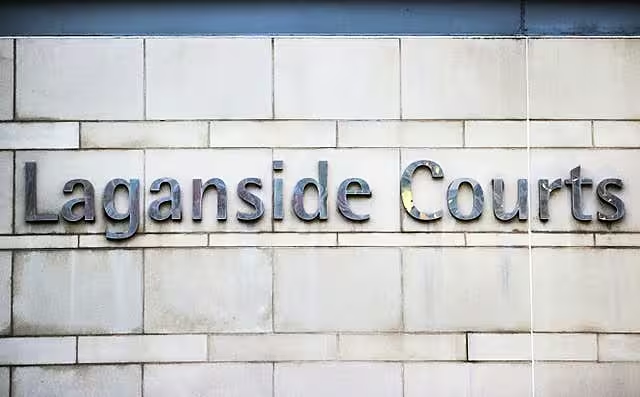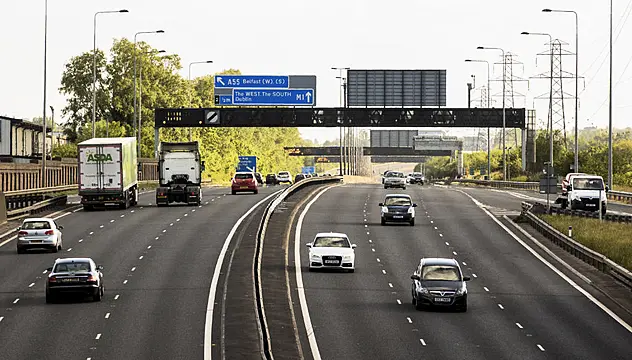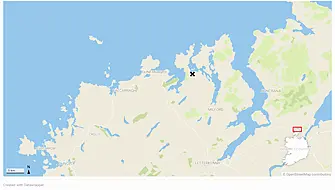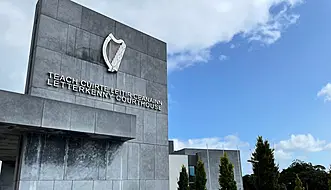A pensioner with suspected dementia who died after crashing into a police vehicle when on the wrong side of the M1 motorway had been told by at least three medical professionals not to drive, a coroner has found.
Phillip Smythe (84), from Armagh, died in hospital days after the collision near Lurgan in the early hours of September 21st, 2015.
The car he was driving collided with a stationary police vehicle after he had travelled for 40 minutes down the wrong side of the motorway in the direction of Belfast.
Delivering her findings in the inquest into his death at Laganside Courthouse in Belfast on Friday, coroner Anne-Louise Toal said there had been unclear guidance for doctors about when they should report concerns over a patient’s fitness to drive to the DVA (Driver and Vehicle Agency).
She told the court that in the months before the incident there had been “significant concerns raised about the deceased’s increasing confusion, possible dementia and around the safety of his continuing to drive”.
She said: “These had been raised by a number of persons, including his carer, family members and family friends, with his GP, other GPs within his practice, a nurse, an occupational therapist, a social worker and an old age psychiatrist.
“Some of these professionals communicated these concerns surrounding his driving with each other,” she added.
She said: “I find that although the deceased had by September 21st, 2015, been told not to drive by at least three separate medical professionals, he had continued to do so.
“I also find that at this time no further action had been initiated by the deceased or by anyone else with the DVA to consider his suitability to drive in light of the concerns raised and despite the results of the initial medical examination undertaken which suggested the deceased had a moderate to significant cognitive impairment and may have been suffering from the effects of possible dementia.”
The coroner said Mr Smythe had been greatly affected by the death of his wife some months earlier.
She told the court that the legal duty to notify the DVA about concerns over a person’s fitness to drive rests solely with the licence holder.
She added: “I find that the guidance at the time was not clear to GPs whether a diagnosis (of dementia) was required to trigger the requirement, in guidance not law, to refer a driver to the DVA.
“I find the GPs were not in breach of the guidance at any time by not informing the DVA directly.”

She said that three days before the collision, Mr Smythe was examined by a consultant psychiatrist and given a diagnosis of possible dementia, with further tests to be carried out.
The coroner said the psychiatrist told Mr Smythe he was not to drive and that he was to inform the DVA of his diagnosis.
She added: “I find the fact that the deceased had continued driving despite medical advice not to do so, and the fact that he may have had difficulty in retaining any such advice should have prompted further consideration of whether a direct notification to the DVA was appropriate.”
However, she said even if the psychiatrist had notified the DVA, Mr Smythe would most likely have retained the legal right to drive pending consideration of his fitness.
Ms Toal continued: “I find the deceased should not have been driving on the night in question and had been advised that he should not be driving.
“I find that due to his cognitive and memory issues he did not remember he had been given this advice and had possession of his car keys and unfettered access to his vehicle.”
The coroner said at around 4am on the morning of his death, Mr Smythe entered the M1 and drove in the wrong direction for about 40 minutes travelling between 40-50mph and passing a number of cars and lorries which had attempted to alert him.
She found it likely that Mr Smythe thought he was travelling in the correct lane of a two-way carriageway and did not understand he was on a motorway.
The coroner told the court that the PSNI was alerted to the incident and four constables arrived quickly on the scene.
Two had unsuccessfully attempted to use a stinger device to bring Mr Smythe’s vehicle to a stop while the others attempted to divert traffic off the motorway.
The coroner said that a police vehicle was on the road with blue lights flashing, but Mr Smythe made no attempt to slow down and crashed into the rear of it.
She added: “I find that given the circumstances the four officers faced on that evening and the extreme constraints of time, the actions taken by the police officers, although undoubtedly putting themselves, potentially other motorists and ultimately the deceased at risk, were appropriate to attempt to avoid the much greater risk of a collision occurring between oncoming traffic and the deceased.
“Had no action been taken to try and divert the oncoming traffic off the carriageway, it is likely that a collision or collisions between the deceased and oncoming vehicles, both moving at speed, would have occurred.”
The coroner said Mr Smythe had sustained significant chest injuries in the collision and died two days later in hospital.
Ms Toal said she would report the matter to the Department for Infrastructure.







